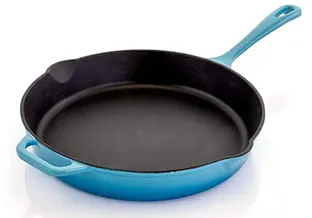
cast iron grill seasoning
The Art of Seasoning Cast Iron Grills Enhancing Flavor and Longevity
When it comes to outdoor cooking, few things are as quintessential as grilling. Among the myriad of grilling tools available, cast iron grills stand out for their durability, heat retention, and superior cooking capabilities. However, the secret to maximizing the performance of a cast iron grill lies in the art of seasoning. Seasoning is not just a necessary step to maintain your grill; it is a mechanism that enhances flavor and contributes to the overall grilling experience.
What is Seasoning?
Seasoning is the process of applying a layer of fat or oil to the surface of cast iron cookware and heating it to create a natural, non-stick coating. This process not only protects the grill from rust and corrosion but also imbues food with a unique flavor that can only be achieved through the caramelization of fats. Properly seasoned cast iron retains heat exceptionally well, allowing for even cooking and better searing of meats.
The Benefits of Seasoning Your Cast Iron Grill
1. Prevention of Rust Cast iron is notorious for rusting when exposed to moisture. Seasoning creates a protective barrier, preventing water from penetrating the iron. This is crucial for maintaining the longevity of your grill.
2. Enhanced Flavor Each time you grill, the oils used contribute to building a more profound and richer flavor profile. Over time, the accumulation of seasoned layers develops a unique taste that enhances each meal.
3. Naturally Non-Stick Surface A well-seasoned cast iron grill has a naturally non-stick surface, which means less food will stick to it. This not only makes cooking more enjoyable but also simplifies clean-up afterward.
4. Increased Durability Seasoning adds an extra layer of resilience to the grill. With proper care and maintenance, a cast iron grill can last for generations, making it a worthwhile investment.
cast iron grill seasoning

How to Season Your Cast Iron Grill
Seasoning is a straightforward process, but it requires some attention to detail to achieve the desired results
1. Cleaning Start with a clean grill. Remove any old seasoning or food residues by scrubbing it with a stiff brush and soap if necessary. Rinse and dry completely.
2. Applying Oil Choose a high-smoke point oil, such as flaxseed, grapeseed, or canola oil. Pour a small amount onto a paper towel and rub it all over the grill’s surface, ensuring an even coating. Wipe away any excess oil to avoid a sticky finish.
3. Heating Preheat your oven to 375°F (190°C). Place the grill upside down on the middle rack with a baking sheet or aluminum foil on the lower rack to catch any drips. Bake for about one hour. This process polymerizes the oil, forming a hard, protective layer.
4. Cooling and Repeating Once done, let the grill cool inside the oven. For optimal results, repeat this process several times. Each layer builds the non-stick surface and flavor complexity.
Conclusion
Seasoning your cast iron grill is an essential ritual that not only preserves your equipment but elevates your culinary creations. Whether you're grilling steaks, vegetables, or seafood, a properly seasoned grill maximizes flavor and performance, allowing you to enjoy delicious meals for years to come. Embrace the art of seasoning and unlock the full potential of your cast iron grill!
-
Cast Iron Cookware Pancake Pan- ZD Cookware|Non-Stick, Even Heat, DurableNewsAug.02,2025
-
Cast Iron Cookware- Baixiang County Zhongda Machinery|Non-Stick, Heat RetentionNewsAug.02,2025
-
High Quality Kitchen Durable Black Round Cast Iron Cookware Pancake Crepe Pan With Wooden Handle|Non-Stick Surface&Heat RetentionNewsAug.02,2025
-
Authentic Traditional Chinese Wok for High-Performance CookingNewsAug.02,2025
-
Season Cast Iron Perfectly with GPT-4 Turbo TipsNewsAug.01,2025
-
High Quality Cast Iron Cookware - Baixiang County Zhongda MachineryNewsAug.01,2025


